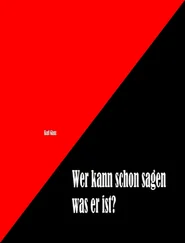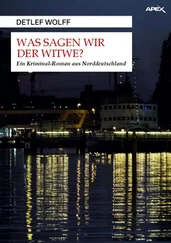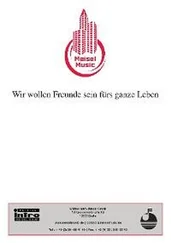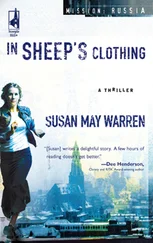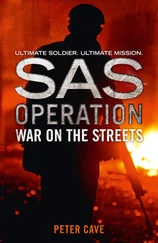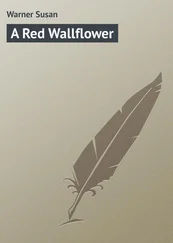“Tour?” asked the ticket seller.
Grishkov shook his head and, turning away and pausing for a moment, turned up the astrakhan collar of his topcoat. It was a filthy gray Moscow day threatening snow, and he was glad he wore a fedora and gloves.
Grishkov marveled at how times had changed. For more than thirty years the cemetery, without explanation, had been closed to the public. Everyone knew it had been closed because the controversial Nikita Khrushchev, after being denounced by Leonid Brezhnev, had been buried here rather than in Red Square with other Soviet leaders. During the Cold War, to visit his grave was to commit a crime against the state. Then came glasnost and with it the rehabilitation of Khrushchev and the reopening of the cemetery so ordinary citizens could visit his grave as well as the graves of famous Russians like Anton Chekhov and the composer Aleksandr Scriabin.
Admiral Stashinsky’s insistence on meeting at Khrushchev’s grave on such a cold day annoyed Grishkov. But then, Stashinsky had entered the navy as a midshipman only weeks after the Cuban Missile Crisis broke, when Khrushchev had Kennedy by the balls. Perhaps Stashinsky wanted to make a point about those long-ago events. Grishkov kept his head down and thought how much better to make the point someplace warm, like Stashinsky’s sumptuous office, with its fireplace and hot tea.
A cold wind blowing off the Moskva River plastered dead leaves against Grishkov’s trouser legs. He put his head down and held on to his fedora, which was threatening to fly away, and started down the long tree-lined walkway that led to the once-infamous gravesite at the rear of the cemetery. He acknowledged the babushki, grandmothers posted throughout the cemetery, no matter what the weather, to give tourists directions.
Up ahead he saw the black and white marble slab that marked Khrushchev’s grave: black and white to symbolize the contrasts, it was said, if not the contradictions of Khrushchev’s rule. Grishkov found the site pleasantly quiet, the only disruptions a helicopter wok-wok-woking northeast up the Moskva River and the singing of traffic on the expressway carving past the cemetery on the south.
At first Grishkov didn’t see Stashinsky. Only after a group of six American tourists viewing the grave had moved on did he notice the admiral, also dressed in civilian clothes, standing with hands deep in the pockets of his topcoat.
Stashinsky seemed to sense Grishkov’s presence. Or perhaps it was when a member of his security detail made his presence known to Grishkov by stepping out from behind a tall headstone nearby.
“Mikhail Vladimirovich!” Stashinsky stripped off a glove and approached Grishkov with a hand extended. “But you are alone.”
Grishkov glanced at the security man. “I am used to being alone.”
Stashinsky frowned. “You should take precautions. Everyone in Russia is a target today.”
“I feel safe here with you, Admiral.”
Stashinsky made no more of it and steered Grishkov toward Khrushchev’s grave. “I used to come here fairly often, but now it’s only twice a year. Thank you for indulging me.”
Grishkov said nothing.
In the biting cold Stashinsky’s face looked dead gray and showed patches of white beard stubble he’d missed shaving. “I want to apologize for the rude way I treated you during our last meeting. It was unfair to criticize you for things over which you have no control. I’m speaking of course about the Barents Sea operation. I spoke to the President and he understands now.”
“Please, there is no need to apologize.”
They came to the grave and halted. Stashinsky stood with fingers linked and head slightly bowed, looking at the cold marble. “It’s ironic, don’t you think, that Khrushchev was the architect of his own downfall. His denunciation of Stalin, the breach with China, the Cuban Missile Crisis. It seems an appropriate lesson for our present situation.”
“What situation is that, Admiral?”
“Our confrontation with the Americans.”
Their shoulders began to collect snowflakes spiraling from the sky.
“I’ve read everything written about Khrushchev,” said Stashinsky. “He made mistakes but was a great man. Mind, I’m not suggesting we should return to those days, but there was a sense of purpose we Russians shared, especially those of us in the military. This of course was before your time, Mikhail Vladimirovich. We were fighting for the survival of our motherland against the Americans.”
Grishkov said nothing.
Snowflakes clung to Stashinsky's hair. He brushed them away as he said, “The only mistake Khrushchev made was not being tough enough. He had Kennedy by the balls and let him go. Had he stuck to his plan, he could have wrung concessions out of Kennedy and could have kept our missiles in Cuba.”
“And could have started a nuclear war,” Grishkov said.
“I’ve studied the evidence and don’t believe it would have come to that. Kennedy was weak and inexperienced. He was on the verge of shitting his pants and was ready to give in when Khrushchev made his fatal error.”
“He overestimated Kennedy’s resolve and capitulated first.”
“Now you see my point.”
“You think we need to get tough with the Americans over the K-363.”
“Of course. We know they want to find and sink the K-363 before we do.”
Grishkov noticed that the snow had started coming down heavier.
“The Americans don’t want Zakayev to fall into our hands,” Stashinsky said. “They want him dead.” Grishkov nodded.
“They don’t want him to tell us things that might be damaging to the U.S. Things that might undermine the summit meeting and the U.S. plan to topple Iran and Syria and for which they need our cooperation.
And most of all, because they don't want us to know about U.S. involvement in Chechnya and support for Zakayev.”
Grishkov held Stashinsky’s gaze. “I thought that rumor had been put to bed.”
Stashinsky snorted again. “Rumors have a way of coming back like a bad dream. I will tell you this, Mikhail Vladimirovich: The information I have comes from the top, from one of Moscow’s most senior individuals. Someone who has access to highly privileged information—information so secret that only three men other than the president have seen it.”
“And you are one of them.”
“It’s all there. Not in black and white, mind you, no hard evidence, nothing that would stand up in a court of law. Always there are prevarications and caveats and nuances of interpretation. But if one reads between the lines and applies common sense, you can see why the Americans are so eager to get rid of Zakayev. Because they have blood on their hands.”
Grishkov ran through in his mind how the people at the top might have gotten such damaging evidence of U.S. involvement with Zakayev and Chechen terrorism. But Stashinsky was saying, “The American naval officer, Drummond. It was his failure to head off Zakayev that set off the alarm for the Americans.”
“Yes, I remember Drummond: murdered in questionable circumstances, in Murmansk. There was a sailor involved.”
“A setup, I assure you, Mikhail Vladimirovich. Zakayev handled it. The FSB investigated and wrote a report. Now we have the Amerikanski, Scott, on the K-480.” Stashinsky growled. “The K-480. A Russian submarine with two Americans aboard, one of them a naval officer, the other one a woman. A woman! What was I thinking when I authorized it? I should have had my head examined.”
“She’s a scientist,” Grishkov offered.
She’s a spy.”
“But there’s also the FSB officer, Abakov. He’s Russian.”
Stashinsky waved a hand. “The Americans still claim to know nothing of the K-480’s whereabouts. As you reported, they are putting on an act that they’re looking into the possibility she’s gone down.”
Читать дальше


